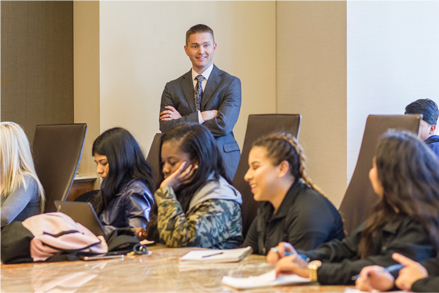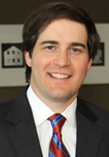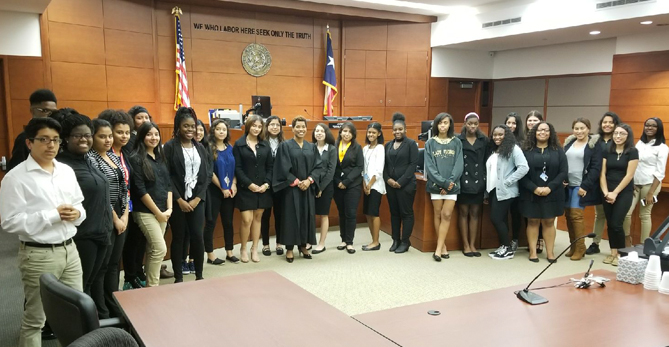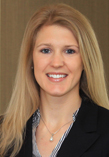© 2017 The Texas Lawbook.
By Natalie Posgate
(Nov. 29) — At least 37 students from L.G. Pinkston High School in West Dallas might never have known that a career in law is available to them, were it not for a group of Dallas professionals that includes lawyers from two Texas firms.
Twice a week for the last six weeks, students from Pinkston’s law magnet have been visiting the Dallas offices of Haynes and Boone, learning both about the practice of law and the business of operating a firm. Earlier in the year, they made similar bi-weekly visits to the offices of Jones Day.
Lawyers involved say the program is mutually beneficial. Students gain exposure to a corporate environment they may not have known existed. But it also gives the lawyers involved the opportunity to improve the persistent diversity shortage in the system’s professional pipeline.
“If we are going to confront the lack of diversity in the legal profession, it’s important to expose students to the practice of law as early and often as possible,” said Brent Beckert, one of the associates leading Haynes and Boone’s involvement in the Pinkston partnership.
“Making the legal world accessible is huge,” said Kara O’Connell, a corporate associate who is one of the leaders of Jones Day’s portion of the program. “I think it’s big for these kids once they see lawyers and talk to lawyers. We educate them about the field, but also tell stories about how we got to where we are. Everybody’s story is different.”

It’s no secret that improving diversity among law firms has been a struggle. Despite substantial increases over the past few decades, minority enrollment in law schools remains low. The result, according to the American Bar Association, is a “critical need to increase diversity in the educational pipeline leading to the legal profession.”
Pinkston’s enrollment is 73 percent Hispanic and 26 percent African-American. More than 70 percent of the school’s students are considered “at-risk,” a term used among the education field for students who are at risk of not graduating high school.
The program aims to provide the students with a broader view of the legal profession and the legal industry that supports it. Research conducted by the AccessLex Institute found that gaps are closed in the educational pipeline when students from underrepresented minority groups have early exposure, developing mentors and formal partnerships with those in the legal profession.
But the program also aims to improve the overall academic climate at the school. In 2009, the state classified only 10 percent of Pinkston students as “college ready” based on their ACT, SAT and 11th grade TAKS test scores.
The program cuts a broad path across the legal profession. Next month, the students will begin a new six-week rotation with the Dallas County court system to learn about criminal law. They will wrap up the school year visiting BB&T Bank, where they will learn about wealth management and other banking matters that involve lawyers.

“A big chunk of students have never met a lawyer before, and of those who have met lawyers, very few have met any other than family or criminal lawyers,” said Beckert.
“The biggest thing I think we’ve been able to achieve is to expose them to types of law… in the corporate context. They see attorneys who look like them, and picture themselves in the boardroom at the office.”
A couple students in the program have already expressed interest in going to law school, said Kenric Narcisse, Pinkston’s campus law magnet lead teacher. He said one student originally thought she wanted to become a criminal lawyer but is now expressing interest in civil litigation after visiting Haynes and Boone.
“Most of the time when [students] think of lawyers, they think criminal lawyers; they know little or nothing about civil litigation, which is just as important,” Narcisse said.
Lawyers at Haynes and Boone have taught students about various types of law, including business litigation, real estate, intellectual property and white collar defense. In mid-November, the firm took the students to observe a hearing in state District Judge Tonya Parker’s courtroom. The hearing was related to the upcoming “chef with no name” trial between celebrity chef Kent Rathbun and his former business partner.

Paralegals and non-lawyer employees at Haynes and Boone from the business development, marketing, recruiting and library resources also talked to students about their day-to-day duties and their roles in helping a law firm operate.

“We do understand that not all of the students want to become attorneys, so we wanted to expose them not only to different areas of the law, but also other types of professions,” said corporate associate Courtney Chouinard, who is co-leading Haynes and Boone’s program with Beckert.
Jones Day associate Bobby Cardone agrees. He says even if the program doesn’t result in the students applying to law school, “exposing them to the business world and getting to come to downtown Dallas” are opportunities to gain perspective they may have not have otherwise had.

Cardone said that at Jones Day the focus was transactional law, which gave the students a taste of two different sides of civil law. During their six weeks there, students learned about M&A, real estate, tax, bankruptcy, IP and healthcare. They also got a crash course on contracts and business enterprises, as well as a field trip to SMU to sit in on a law school class.
“It’s a great way for transactional lawyers to get involved with the community,” said Cardone, who helped spearhead the Jones Day program. “A lot of pro bono efforts that we have are more litigation focused.”
Kara O’Connell said the firm also taught the students about investments. Each was assigned the stock ticker for a public company to follow and study its corporate documents. At the end of the six weeks, the students examined how much their stock prices increased or decreased. The ones that increased taught a valuable lesson of “how much you would have made in six weeks by doing nothing but investing,” she said.
Mock negotiations proved a fan favorite at the end of the students’ Jones Day rotation. They were assigned to negotiate a soccer player’s salary with team management.

“A number of them came up to me after and said, ‘that was so much fun. I really enjoyed it.’” O’Connell said. “I told them lawyers do a lot of reading and other things, but this is also what we do.”
Haynes and Boone will also conduct a mock negotiation workshop next Wednesday, the last day of the firm’s six-week program.
When the students begin their time at BB&T in the spring, they will learn about the varying roles of lawyers at banks, said Scott Davis, the senior vice president and Texas trust regional director at BB&T Wealth in Dallas.
Davis said he will bring in 10 to 20 of his BB&T colleagues – predominantly non-lawyers – to teach the students about various topics ranging from wealth management and estate planning to lending money, managing trusts and trust litigation. He said he plans to also bring in a group of outside attorneys that his bank partners with on various projects for clients.

“A lot of what our internal folks will talk about is how they work with lawyers,” Davis said.
Davis also plans to present material that will cover how lawyers play a role in the upkeep and enforcement of financial accountability.
His brother is Chris Davis, a lawyer in the U.S. Securities & Exchange Commission’s Fort Worth Regional Office. Davis said he plans to bring his brother in one day to speak to students about what he does as a prosecutor at the SEC as well as his notable cases, including his role as lead prosecutor of the high-profile Ponzi scheme that victimized three professional athletes.
A licensed lawyer himself, Davis said he will also talk one day about family law, which he practiced early in his career before he shifted his focus on trusts and estate planning.
Because his role at BB&T is such a hybrid of legal and bank advisory work, he hopes the Pinkston students will take away the idea that there are many non-traditional roles for attorneys.
“I think this is good because not everyone wants to go to court,” Davis said. “My job a lot of the time is to avoid litigation. I didn’t want to be a courtroom lawyer, but I love what I do. I want to show them a different side of the law that I doubt most of them have thought about.
“There are so many different opportunities out there as a lawyer,” he added.
© 2017 The Texas Lawbook. Content of The Texas Lawbook is controlled and protected by specific licensing agreements with our subscribers and under federal copyright laws. Any distribution of this content without the consent of The Texas Lawbook is prohibited.
If you see any inaccuracy in any article in The Texas Lawbook, please contact us. Our goal is content that is 100% true and accurate. Thank you.
